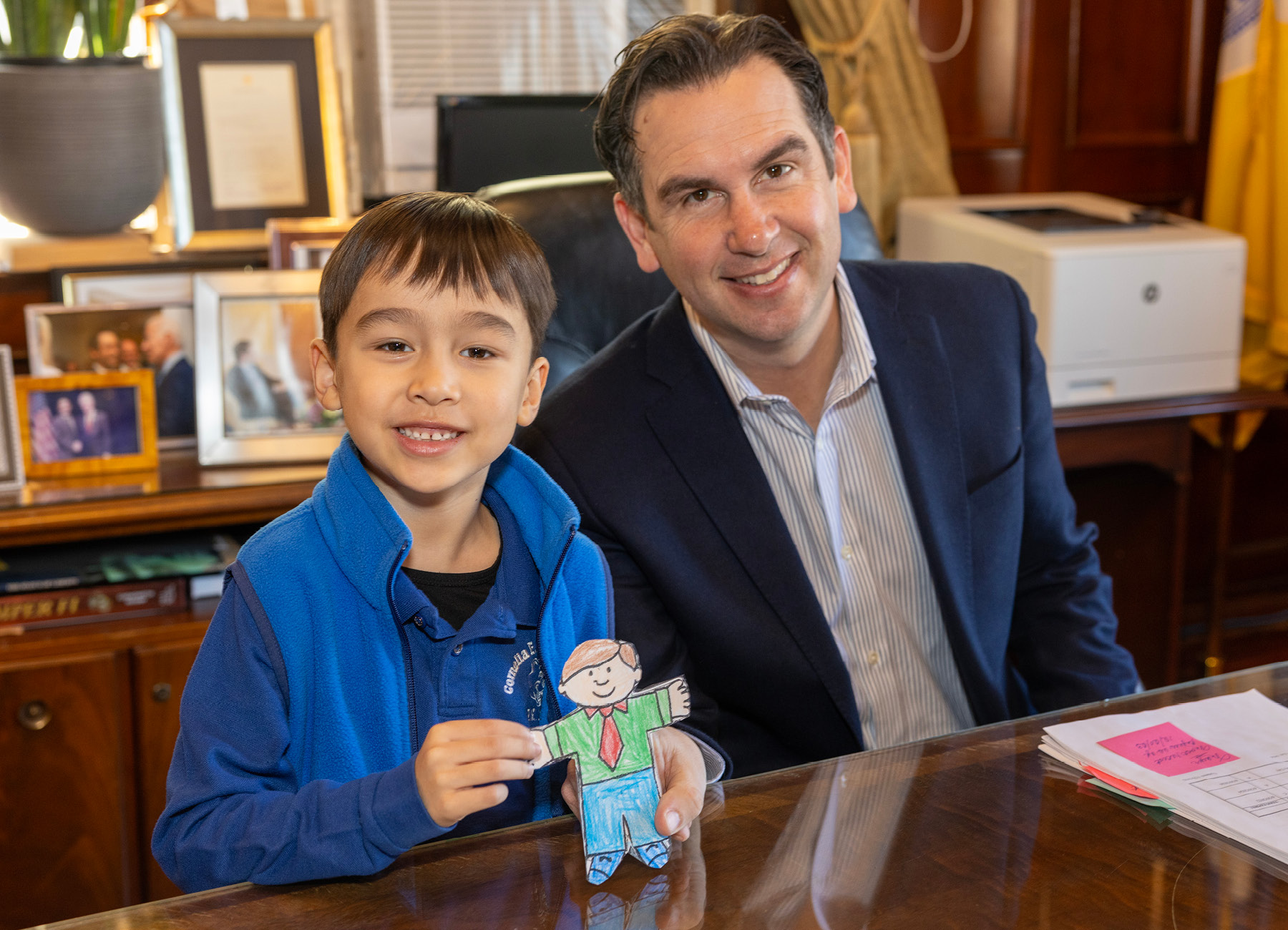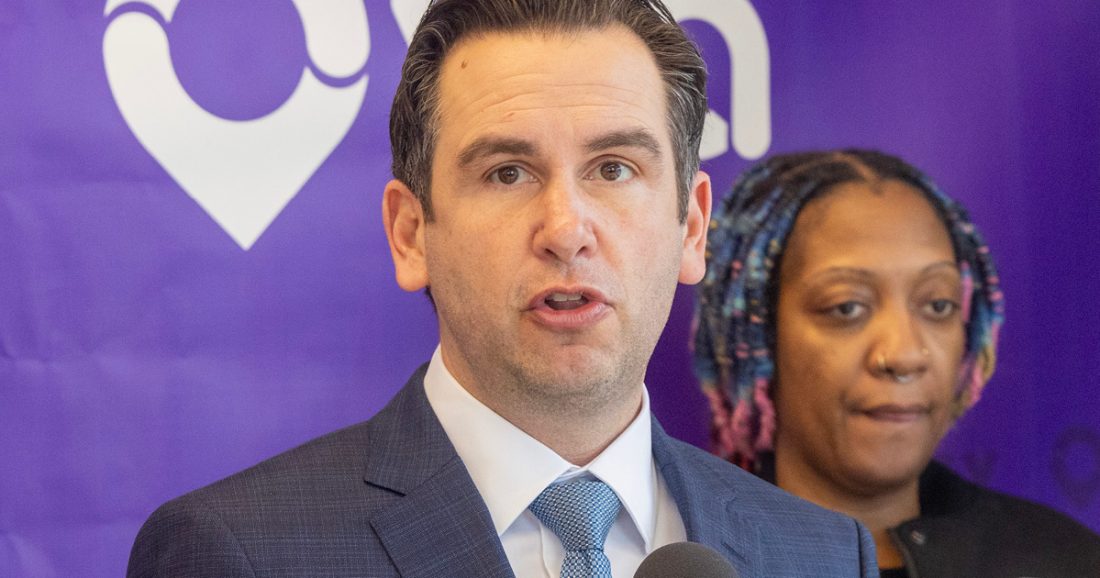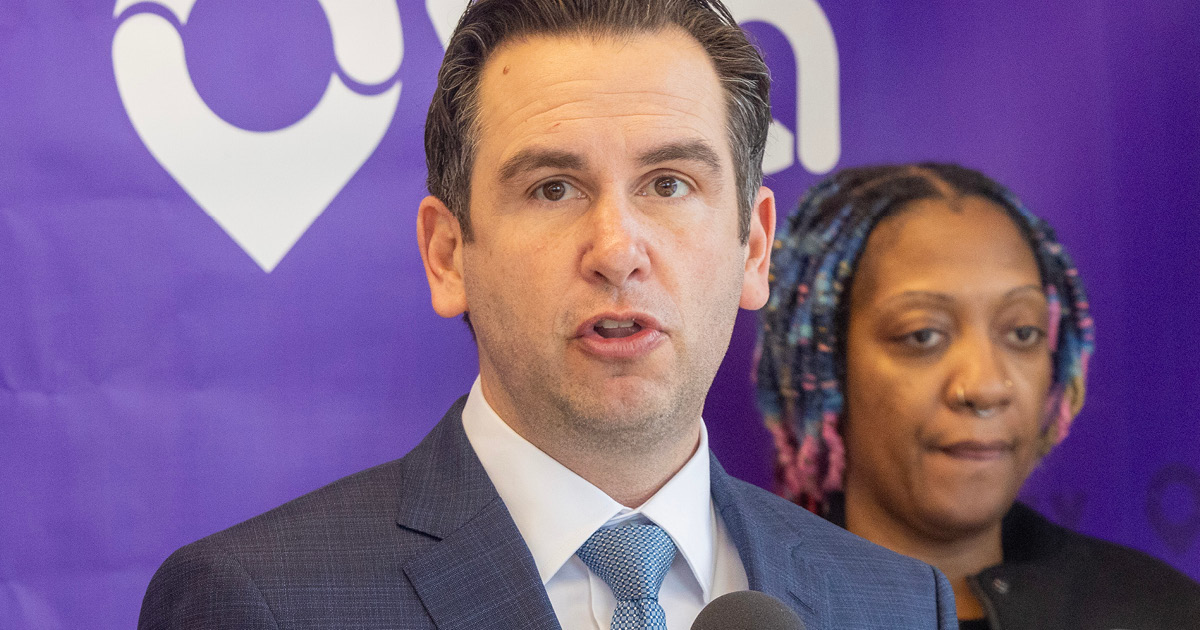A brief glance at Steven Fulop’s CV reveals an impressive variety of roles, but one aspect stands out: the importance of service.
As the child of immigrant parents who survived the Holocaust to settle in New Jersey, Fulop’s upbringing showed him the value of hard work.
“My father ran a deli and my mother had an immigration services business,” the Mayor of Jersey City tells The CEO Magazine. “They were both very hard working entrepreneurs.”
This entrepreneurial work ethic rubbed off on Fulop, encouraging him to undertake a bachelor’s degree and postgraduate studies.

“Thinking of ways that makes it easier for people to invest in Jersey City has been a meaningful difference maker.”
After graduating, he worked with Goldman Sachs on the trading floor, quickly achieving a place in their associate program. Then the September 11 attacks happened.
“I enlisted in the military and was assigned to the Marine Corps,” he says. “Then I was deployed to Iraq.”
After serving his country for four years, Fulop returned to the United States. But in the meantime, he had lost his drive to pursue a career in the financial sector.
“There were more meaningful things I wanted to be a part of,” he recalls.
Running for city council in Jersey City seemed like a logical step to continue his service to the public. Fulop was elected to the City Council in 2005, and in 2013, he successfully ran for the position of mayor. He is now serving his third term – the first mayor in 70 years to do so. But his election coincided with a tumultuous time in the council.
Winning back trust
“The city was a different place 10 or 11 years ago,” Fulop acknowledges. “In 2012, one of the largest corruption busts in the history of the state was focused on Jersey City, impacting both the mayor’s office and the city council’s office.”
As a result, the reputation of the council took a battering, and so did the community’s faith in the office of the mayor.

Advertisement
On the back of this scandal, Fulop laid out his plans to not only win back the trust of the residents, but also to bring the city out of New York City’s shadow.
“I was very clear, very detail-oriented about what I wanted to achieve,” Fulop explains. “Once I was elected, it was just a matter of executing that plan. We were able to overcome any ‘NIMBY-ism’ because I had articulated my ideas in advance.”
The change over the past decade has been remarkable. Fulop has overseen the expansion of development away from the waterfront to include the rest of the city. Affordable housing and a focus on tackling homelessness has been another priority.
“On social welfare policies, on economic development policies, the city’s been leading the charge and a lot of these things are replicated by the state,” he says.
Partnerships for change
While much of this success comes down to executing his plans, Fulop also acknowledges the important role the private sector has to play.
“We created a process that is quick, easy and certain with regards to how we interact with the private sector, which I think has fostered a lot of outside investment,” he says.

“On social welfare policies, on economic development policies, the city’s been leading the charge and a lot of these things are replicated by the state.”
These economic partnerships have led to extensive and positive changes throughout the city, from investments in the arts and nightlife to the development of alternative transport systems.
“A mass transit infrastructure to move people around the city without having to rely on personal vehicles – that didn’t exist prior to our administration,” Fulop reveals.
“We’ve built extensive bike networks, and we’ve developed the most robust rideshare technology in the country. And we’ve introduced a ferry system to help people move from the south side of Jersey across to New York City more easily.
“Thinking of ways that make it easier for people to invest in Jersey City has been a meaningful difference maker.”
Driven by a mission
Essential to this growth has been the retention of the right staff. Fulop is frank about the difficulties in competing with the private sector on salary, instead focusing on fostering a culture and vision to attract the right people.
“I would say we have some of the finest public officials you can hire,” he says. “Somebody who is mission driven and has an interest in work–life balance and being impactful in their community – that is our target market.”

“We want to make Jersey City the best mid-sized city in the United States.”
Fulop knows that he won’t be mayor forever, but he is proud of the legacy he will leave when he finally hands over the torch to his successor.
“We’re still in the early stages of this renaissance story, and it’s been one of the best renaissance stories in the entire country,” he says. “Ultimately, we want to make Jersey City the best mid-sized city in the United States.”




